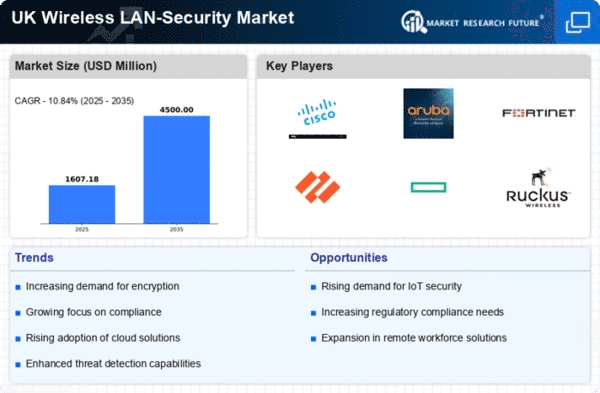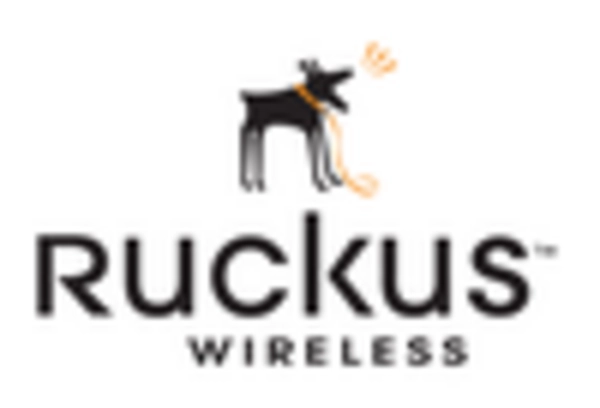Rising Cybersecurity Threats
The wireless LAN-security market has heightened demand due to the increasing frequency and sophistication of cyber threats.. In the UK, businesses are facing a surge in cyberattacks, with reports indicating a 30% rise in incidents over the past year. This alarming trend compels organizations to invest in robust wireless security solutions to safeguard sensitive data and maintain operational integrity. As cybercriminals exploit vulnerabilities in wireless networks, the need for advanced security measures becomes paramount. Consequently, the wireless lan-security market is likely to expand as companies prioritize the protection of their digital assets against evolving threats.
Increased Remote Work Adoption
The wireless lan-security market is witnessing a surge in demand driven by the growing trend of remote work. In the UK, approximately 40% of the workforce is now engaged in remote or hybrid work arrangements. This shift necessitates the implementation of secure wireless networks to protect sensitive information accessed from various locations. Organizations are increasingly investing in wireless security solutions to mitigate risks associated with remote access, such as unauthorized data breaches and network vulnerabilities. As remote work becomes a permanent fixture in the corporate landscape, the wireless lan-security market is expected to expand to meet the evolving security needs of businesses.
Growing Awareness of Data Privacy
The wireless LAN-security market grows due to heightened awareness of data privacy among consumers and businesses.. In the UK, public concern regarding data breaches and privacy violations has intensified, prompting organizations to prioritize the protection of personal information. Surveys indicate that 70% of consumers are more likely to engage with companies that demonstrate a commitment to data security. This shift in consumer expectations compels businesses to invest in robust wireless security solutions to build trust and maintain customer loyalty. As awareness of data privacy continues to rise, the wireless lan-security market is likely to expand as organizations seek to enhance their security posture.
Regulatory Compliance Requirements
The wireless lan-security market is significantly influenced by stringent regulatory frameworks that mandate enhanced security measures. In the UK, regulations such as the General Data Protection Regulation (GDPR) and the Data Protection Act impose strict guidelines on data handling and security protocols. Non-compliance can result in hefty fines, reaching up to £17.5 million or 4% of annual global turnover, whichever is higher. This regulatory landscape drives organizations to adopt comprehensive wireless security solutions to ensure compliance and avoid potential penalties. As a result, the wireless lan-security market is poised for growth as businesses seek to align their security practices with legal requirements.
Technological Advancements in Security Solutions
The wireless LAN-security market benefits from rapid technological advancements that enhance security capabilities.. Innovations such as next-generation firewalls, intrusion detection systems, and advanced encryption techniques are becoming integral to wireless security strategies. In the UK, the adoption of these technologies is projected to grow by 25% over the next five years, as organizations seek to bolster their defenses against increasingly sophisticated cyber threats. The continuous evolution of security technologies not only improves the effectiveness of wireless security measures but also drives market growth as businesses strive to stay ahead of potential vulnerabilities.
















